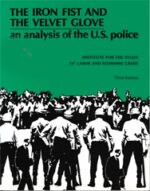Description
Social Insecurity: The Transformation of American Criminal Justice, 1965-2000
Platt’s article provides strong empirical support for the analysis that in the last 35 years, there has been a qualitative transformation of the U.S. criminal justice system, which has become increasingly influenced by national politics and policies, with less and less local accountability. Police and prisons expanded at unprecedented rates in the 1970s and 1980s, paid for primarily by drastic cuts in public health, welfare, and education. Moreover, the increasing racialization of social control (from San Quentin to city planning) reinforces the conclusion that the struggle for civil rights remains very much unfinished.
criminal justice, public safety, courts, crime and criminals, criminal justice, juvenile delinquency, police, prisons — United States, United States — politics and government — privatization
Citation: Social Justice Vol. 28, No. 1 (2001): 138-155


